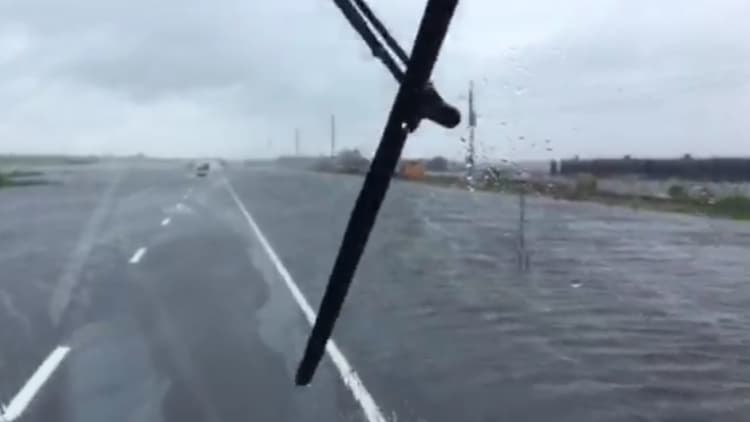As victims of Hurricane Harvey deal with personal devastation, including property loss and the prospect of a lengthy recovery, paying credit card bills probably won't be a priority. But making the right moves with creditors after a natural disaster or other crisis can save headaches later.
Here are some basic moves to make when you can't pay your credit card bills after an emergency.
More from NerdWallet:
How to pay bills when you can't pay your bills
What happens if I make only the minimum payment on my credit card?
How long until a late payment hits my credit report?
Maintain priorities
Paying credit card bills late or not at all can lead to penalties, interest charges and damage to your credit score. But keep perspective and attend to your most urgent financial needs first. Paying your mortgage or rent — and insurance payments, if you'll be making a claim — should stay high on your priority list, probably higher than paying credit card bills.

Plan to contact creditors
Credit card issuers will likely work with you on a plan during an emergency, but it's crucial to contact them as soon as possible to explain your situation, according to the Federal Deposit Insurance Corp.
"The important thing is to make the call before your next payments are due," says a guide from the Consumer Financial Protection Bureau. "Late or missing payments could damage your credit score at a time when you need access to credit most."
During mass disasters, like a hurricane, credit card issuers often are proactive in identifying customers affected and offering leniency, such as temporarily waiving late fees and minimum payments, says Matthew Towson, a spokesman for Discover.
Run the numbers
Prior to making the call, scratch out a rough, near-term household budget based on the best information you have. For your call with a credit card issuer, estimate two crucial pieces of information: how much you can pay and when you can pay it.
"Those are things that matter to them," says Paul Golden, spokesman for the National Endowment for Financial Education. "The higher your credit score, the more likely your creditors are (to be) willing to work with you. But the bottom line is they want to get paid."
Call your credit card issuer using the phone number on the back of the card. It may be an emotional time, but remember that this is a business call. Stick to the topic at hand: how you can keep your account in good standing.
Negotiate payment dates, interest rates, late fees — even a credit limit increase, if you have good credit and need a short-term increase in spending ability in the wake of the emergency. Talk about whether the issuer will report nonpayment to the credit bureaus.
During the call, document details of the conversation, noting dates, dollar amounts and whom you spoke to.
The earlier, the better
When emergency strikes and you're in danger of not paying credit card bills, communication is key.
"You should negotiate if it looks like you're going to be unable to make those credit card payments," Golden says. "The earlier, the better."
Like this story? Like CNBC Make It on Facebook
Don't miss: These duck boats are delivering medical supplies and rescuing Harvey victims

